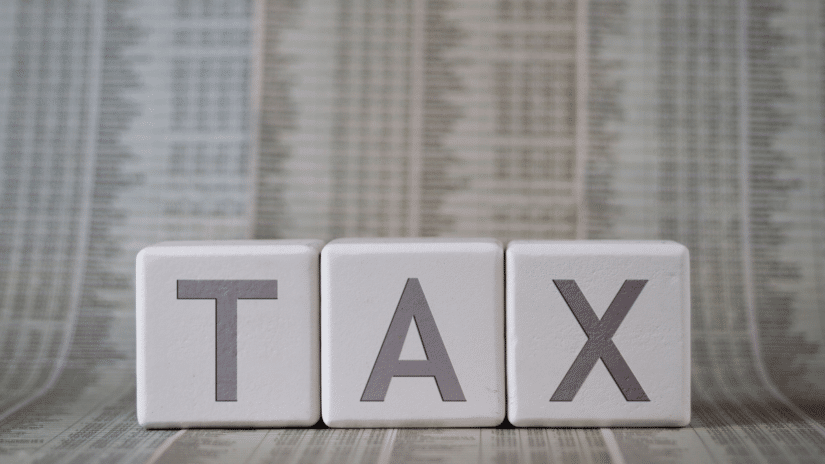Corporate Taxes in Luxembourg
If you want to invest as an expat or high-net-worth individual, which is what i specialize in, you can email me (advice@adamfayed.com) or use WhatsApp (+44-7393-450-837).
This article isn’t tax advice and the facts might have changed since we wrote it.
Table of Contents
Introduction
There are numerous advantages to opening a business in Luxembourg such as easy registration, business starting costs, etc.
Being one of the founding members of the EU, Luxembourg is also one of the parliamentary capital of the EU.
Various sectors such as Information and communication technology, biotech, financial services, etc., perform well in the country.
Nonetheless, there are key considerations for a business in Luxembourg such as obtaining licenses, permits, etc.
The taxation for businesses in Luxembourg happens to be another consideration as many countries may have fewer taxes.
Despite that, if you have an intention of starting a business in Luxembourg, you’ll need to be attentive to the taxes.
That’s why, we will discuss the corporate taxes in Luxembourg alongside some other useful information.
Important Changes
DAC 7 Adoption in Luxembourg
On May 3, 2023, the Luxembourg Parliament approved bill n°8029, integrating DAC 7 into Luxembourg’s legal framework.
This brings in fresh obligations for platform operators to report.
It also enhances data protection regulations for data controllers when it comes to sharing information automatically and cooperating on administrative matters.
Tax Residence (Corporate)
A company is regarded as a resident in Luxembourg if either its registered office or central administration is situated in the country.
This is in accordance with Luxembourg’s domestic law.
In the company’s articles of incorporation, the registered office is formally designated.
The central administration’s location generally refers to where the company is managed and controlled.
Although this term lacks a legal definition, it is determined based on various factors such as:
- Where board of directors meetings take place.
- The location of shareholders’ meetings.
- Where the company’s officers make critical decisions.
- The place where the company’s records and books are maintained.
- Other similar indicators of management control.
Permanent Establishment (PE)
Tax treaties signed by Luxembourg typically adhere to the phrasing of the OECD model regarding Permanent Establishments (PEs).
In Luxembourg’s domestic tax law, a similar PE concept exists.
However, it is defined more broadly as any fixed equipment or place utilized for conducting an established business.
The provision defining PE in Luxembourg’s domestic law was modified by the implementation of the EU Anti-Tax Avoidance Directive 1 (ATAD 1) into domestic law.
This is effective for tax years starting on or after January 1, 2019.
This alteration aims to address conflicts in the interpretation of whether a PE exists.
It arises from the interaction between domestic law and relevant double taxation treaties (DTTs).
According to this provision, the definition of a PE should be solely based on the criteria established by the DTT.
In specific cases, the Luxembourg tax authorities may request confirmation from the other contracting state.
This is to make sure that they indeed recognize the presence of a PE on their territory, supported by relevant documentation.
In certain situations, this confirmation must be provided in advance and attached to the annual tax return.
Branch Income
Usual CIT rates apply for non-resident companies’ branches located in Luxembourg.
If the branch carries commercial activity within the nation, then it is subject to a municipal business tax.
Corporate Income Tax (CIT)

Luxembourg taxes its resident companies on their global income, while non-resident entities are taxed on income generated from Luxembourg.
For businesses with taxable income below 175,000 euros (EUR), the corporate income tax (CIT) rate is 15%.
Companies with income ranging from EUR 175,000 to EUR 200,001 face CIT computed as EUR 26,250 plus 31% of the income exceeding EUR 175,000.
If a company’s taxable income exceeds EUR 200,001, the CIT rate is 17%, resulting in an overall tax rate of 24.94% in Luxembourg City.
Solidarity Surtax and Municipal Business Tax
This calculation considers a 7% solidarity surtax on the CIT rate and includes the 6.75% municipal business tax rate.
It’s worth noting that tax-transparent entities are generally exempt from CIT unless they are subject to reverse-hybrid rules.
These include general or limited partnerships or European Economic Interest Groupings.
In the past, there used to be a minimum CIT for Luxembourg resident companies.
But since 2016, there is no longer such a minimum CIT requirement.
Instead, a minimum net wealth tax is in place.
An additional 7% solidarity surtax is applied to the CIT amount, making the total CIT rate 18.19% for companies with income exceeding EUR 200,001.
Municipal business tax rates vary from one commune to another. For Luxembourg City, the municipal business tax rate stands at 6.75%.
The overall CIT rate in Luxembourg City, including CIT, solidarity surtax, and municipal business tax, amounts to 24.94%.
Income Determination
Let us have a look at the details regarding what is considered corporate income in Luxembourg.
Inventory Valuation
Inventories are valued at the lower of actual cost or market cost.
Various methods like FIFO, LIFO, and weighted-average cost are acceptable for income tax, as long as they align with the facts.
Dividend Income
Luxembourg-resident companies are typically subject to Corporate Income Tax (CIT) on dividends received.
However, dividends can be tax-exempt under the “participation exemption” if specific conditions are met.
Conditions include the distributing company’s type, tax status, the beneficiary company’s holding period, and the minimum ownership percentage.
General Anti-Avoidance Regime (GAAR)
The participation exemption regime has GAAR rules based on EU directives.
GAAR applies when arrangements are not “genuine” and are primarily structured for tax advantages that undermine the directive’s purpose.
There is no detailed guidance on these EU-driven measures from Luxembourg tax authorities.
Capital Gains
Capital gains are usually treated as regular income or losses.
Certain cases allow for tax deferral or exemption for capital gains and hidden reserves during mergers or reorganizations.
The tax deferral is only possible as long as certain conditions are met.
Taxation of Non-Resident Corporate Investors
Non-resident corporate investors might face CIT on capital gains when selling significant participation in a Luxembourg company within six months of acquiring it.
The CIT is applicable for non-resident corporate investors unless a tax treaty states otherwise.
Certain types of entities, like SICAV, SICAR, and SPF, might be exempt from this tax.
Interest and Royalty Income
Interest income is fully subject to CIT and municipal business tax in Luxembourg.
Royalty income from IP assets acquired or developed after June 30, 2016, follows standard tax rules and rates.
Transparent Entities
Transparent entities, often partnerships, are treated as having no separate legal personality for CIT and Net Wealth Tax (NWT).
They may still be liable for municipal business tax if engaged in commercial activities.
Foreign Income
Luxembourg resident companies are taxed on worldwide income.
Dividends from foreign subsidiaries are usually taxed upon receipt but may be exempt due to double taxation treaties (DTTs).
Foreign branch profits not exempt by a DTT can receive a foreign tax credit, and any excess foreign taxes paid can be deductible as expenses.
Luxembourg primarily uses the exemption method in its DTTs.
Value-Added Tax

VAT Rates
Luxembourg imposes VAT on supplies of goods and services within its borders.
The standard VAT rate is 17%, which is the lowest in the European Union.
However, there are reduced rates for specific transactions:
- 14% for certain items like wines, advertising pamphlets, and securities management.
- 8% for goods like gas and electricity.
- 3% for specific items like food (excluding most alcoholic beverages), pharmaceutical products, books (including e-books), radio and television broadcasting services (excluding adult content), and clothing, shoes, and accessories designed for children under 14.
Moreover, from January 1, 2023, until December 31, 2023, the standard rate and reduced rates will decrease by 1%.
Thus, resulting in rates of 16%, 13%, and 7%, respectively.
VAT Exemptions
Banking, financial, insurance, and reinsurance activities are typically exempt from VAT.
However, there are some restrictions on recovering VAT paid on related expenses.
Some VAT-exempt transactions, such as exports, allow suppliers to recover input VAT on associated costs.
VAT Registration
In general, Luxembourg resident businesses must register for VAT.
However, those engaged exclusively in VAT-exempt activities and unable to recover input VAT may not need to register.
This is the situation unless they are liable to self-assess VAT on goods or services from abroad.
In such cases, simplified VAT compliance requirements may apply.
VAT Returns and Compliance
Usually, businesses must file monthly VAT returns, along with an annual summary.
In certain cases, they may qualify for quarterly or annual returns based on turnover and incoming transactions.
Luxembourg has introduced the Standard Audit File for Tax (SAF-T) as FAIA (Fichier d’Audit Informatisé de l’Administration de l’Enregistrement, des Domaines et de la TVA).
SAF-T helps taxable persons provide structured accounting data to VAT authorities during audits.
Penalties and late interest may be imposed for VAT non-compliance.
Unique VAT Provisions
Luxembourg introduced a VAT grouping regime in 2018.
This allows related companies to be treated as one VAT entity, simplifying VAT reporting.
The EU VAT Directive’s Article 80 was also implemented to address overestimation or underestimation of the sale or purchase price in transactions between related parties.
This is to endure a fair market value.
Additionally, a circular letter by Luxembourg VAT authorities confirmed that independent directors are subject to VAT.
This is regardless of the case whether they are companies or individuals.
Managing directors and managers can be personally liable for VAT non-compliance and unpaid VAT on behalf of the companies they manage.
Luxembourg’s VAT system includes standard and reduced rates, exemptions for certain sectors, registration requirements, and VAT return procedures.
The introduction of SAF-T, VAT grouping, and Article 80 provisions are notable developments.
Customs Duties/Import Tariffs
Goods entering the European Union may be subject to customs duties, with rates based on product nature and quantity.
Excise Duties
In addition to VAT, specific products like electricity, mineral oils, tobacco, and alcohol are subject to excise duties.
These duties are calculated based on quantity, not product price.
Stamp Taxes
No stamp duty in Luxembourg.
Environment Taxes
Luxembourg entities are not subject to environmental taxes.
Net Wealth Tax (NWT)
Luxembourg resident companies and Luxembourg branches of non-resident companies are subject to NWT, calculated based on net wealth.
The rates are as follows:
- Up to EUR 500 million: 0.5%
- Exceeding EUR 500 million: EUR 2.5 million, plus 0.05% on the portion above EUR 500 million.
Minimum NWT
Minimum NWT applies to corporate entities with their seat or central administration in Luxembourg.
The charge varies based on total gross assets, which is EUR 535 to EUR 32,100, depending on the total gross assets.
NWT Reduction
NWT reduction is limited to the previous year’s CIT (before tax credits) and cannot reduce NWT to zero. A minimum NWT is still owed.
Subscription Tax
Investment funds face subscription tax based on their total net assets at the end of each quarter.
Rates vary, with exemptions for certain funds.
Sustainable investments can lead to reduced rates, certified by an auditor.
Foreign UCI Management
Foreign UCIs managed by Luxembourg-based management companies are not subject to Luxembourg subscription tax.
Luxembourg has various taxes including customs duties, excise duties, NWT, and subscription tax, with specific rules for minimum NWT, exemptions, and sustainable investments.
Registration Taxes

A fixed registration fee of EUR 75 is imposed on specific transactions involving Luxembourg legal entities.
This includes incorporation, amendments to articles of association, or transferring the seat to Luxembourg.
Real Estate Transactions
The sale or transfer of property in Luxembourg incurs a 7% proportional registration fee (plus a 3% city surtax for property in Luxembourg City).
Contributions of property for securities result in a 1.1% proportional registration fee (plus a 0.3% city surtax in Luxembourg City).
Contributions of property for purposes other than shares have a 7% proportional registration fee (plus a 3% city surtax in Luxembourg City).
Restructuring-related property contributions may be exempt from proportional registration fees, depending on certain conditions.
Rental Agreements
Rental agreements usually don’t require registration, except for long-term leases.
Parties can voluntarily register lease agreements at a 0.6% registration fee or opt for a fixed fee of EUR 75 if they have a valid VAT option.
Commune Real Estate Tax
Communes levy an annual real estate tax based on the unitary value of real estate.
The basic rate varies from 0.7% to 1%, depending on property type, and is multiplied by specific coefficients.
Real Estate Levy for Luxembourg Funds
A real estate levy applies to certain Luxembourg investment funds with direct real estate ownership in Luxembourg.
The levy covers rental income and gains from real estate assets and is charged at a 20% rate.
It must be reported by May 31 of the following calendar year and paid by June 10 of the same year.
A return must include income details, a breakdown of income per asset, and the total real estate levy.
Payroll Taxes
Employers withhold payroll taxes, with a maximum withholding rate of 42%.
A solidarity tax, up to 9% of the tax, is also applied.
Social Security Contributions
Employees’ social security contributions include sickness (2.80% of gross income) and pension (8% of gross income, both limited to specific ceilings).
Dependency contributions are imposed on gross professional income, with a rate of 1.4%.
Please note that certain social security agreements protect temporary resident employees in Luxembourg.
Deductions

Depreciation
When calculating depreciation for tax purposes, it should align with the economic reality.
Depreciation is computed based on the asset’s acquisition cost, considering its expected lifespan and estimated residual value.
Typically, the straight-line method is used, but declining balance can be applied to certain assets.
The declining balance rate should not exceed three times the straight-line rate (or 30%, or four times for specific assets).
Changing from a declining balance to a straight line is allowed, but not the other way around.
When selling a depreciated asset, any profit might be subject to income tax, unless the proceeds are reinvested. Capital losses are deductible.
Certain assets with low value or a short economic life can be fully expensed in the year of acquisition.
Accelerated depreciation is available for environmentally friendly assets, energy-saving equipment, and facilities for disabled workers.
Deferred Depreciation
Starting from 2017, taxpayers can defer depreciation deductions. They must request this while filing their tax return.
The deferred deduction must be used by the end of the asset’s depreciation life.
This can lead to timing differences affecting CIT and municipal business tax. It might also help reduce the Net Wealth Tax (NWT) liability or enable the use of tax credits.
Goodwill
Goodwill is typically amortized over its useful life, usually up to ten years if the lifespan is uncertain.
Start-up Expenses
Formation expenses can be expensed in the year incurred or depreciated over a maximum of five years.
Interest Payments
Interest payments are deductible as long as they follow the arm’s-length principle.
Deductibility issues may arise if interest depends on company profits or if loans are structured as bonds.
Thin capitalization rules might limit deductibility.
The law implementing ATAD 1 (effective from 2019) introduces interest limitation rules in Luxembourg.
These rules apply to excess borrowing costs, which are borrowing costs exceeding taxable interest revenues and similar income.
Excess borrowing costs are deductible up to 30% of the taxpayer’s net revenues before interest, tax, depreciation, and amortization (EBITDA) or up to EUR 3 million.
Exceptions include existing loans from before June 17, 2016, and long-term infrastructure projects.
Unused deductions can be carried forward.
The Luxembourg tax authorities issued guidance on interpreting the interest limitation rules.
An amended circular in March 2022 provided further details on EBITDA computations, grandfathering, LIBOR phase-out, and interactions with recapture rules.
Hybrid Mismatches
Hybrid mismatch rules were introduced in 2019 for intra-EU scenarios.
ATAD 2 expanded these rules to include more intra-EU and third-country cases, effective from January 1, 2020.
For some taxpayers, the “reverse-hybrid” measures begin to apply since 2021.
A hybrid mismatch happens when differences in how financial instruments or entities are legally defined result in:
- A double deduction of expenses in different countries.
- A payment deductible in one country without corresponding income inclusion in another.
To address these issues, double deductions will only be allowed in the source country.
Deductions without income inclusion will be denied in the payer country.
From 2022, transparent partnerships in Luxembourg are subject to CIT when their income isn’t taxed elsewhere.
This happens as long as non-resident entities owning 50% or more of the partnership consider it taxable.
Bad Debt
Provisions for bad debts are tax-deductible.
Charitable Contributions
Gifts to public benefit institutions are deductible, up to 20% of net income or EUR 1 million.
Shareholdings
Expenses related to business activities are deductible, except for expenses on exempt shareholdings.
Severance Payouts
Severance payouts are deductible up to EUR 300,000 for CIT and municipal business tax purposes.
Fines and Penalties
Fines and penalties incurred by taxpayers are not tax-deductible.
Taxes
Some taxes are deductible in CIT calculations, while others are credited.
Non-deductible taxes include CIT, municipal business tax, and NWT.
Net Operating Losses
Losses from 2017 onward can be carried forward for a maximum of 17 years, but not carried back.
Payments to Foreign Affiliates
Payments like royalties, service fees, and interest to foreign affiliates are deductible if they meet arm’s-length standards.
- Payments to EU Black-Listed Entities
Interest or royalties paid to related entities in black-listed countries are not tax deductible, subject to certain conditions.
- EU Black-Listed Entities Legislation
The legislation applies to specific expenses paid to related enterprises in black-listed countries. Definitions align with OECD standards.
This rule took effect on March 1, 2021, with flexibility based on changes in the list.
Luxembourg companies must report transactions with EU black-listed entities in their tax returns.
The tax authorities issued a circular on May 31, 2022, providing limited guidance and the possibility of filing a ruling request for exceptions.
Tax Credits and Incentives
Incentives
Luxembourg offers various incentives in risk capital, audio-visual, environmental protection, R&D, training, and hiring the unemployed.
Investment tax credits are the most common.
Intellectual Property Regime
The new IP regime began in 2018, granting an 80% exemption on eligible net income from qualifying IP assets.
This results in a 5.202% effective tax rate for corporate taxpayers in Luxembourg City.
IP Regime Scope
The new regime uses a “nexus approach” to link expenses, IP assets, and income.
Qualifying assets include inventions protected by patents and copyrighted software.
- Previous IP Regime:
The previous IP regime phased out from 2016 in line with EU and OECD recommendations.
It was repealed in 2016 for CIT and in 2017 for NWT, with a transitional period until June 2021.
R&D Incentives
Luxembourg entities in R&D activities can receive financial support, including innovation loans and cash grants.
Support levels depend on the beneficiary’s size and type of R&D.
Tax Credits for Investments
Luxembourg provides investment tax credits for enterprise profit-seeking investments that remain in Luxembourg or the European Economic Area.
Tax Credits for Additional Investment
The tax credit for additional investment is 13% of the net book value of qualifying assets.
It ensures a minimum of EUR 1,850 and considers asset depreciation.
Tax Credits for Overall Investment
These tax credits depend on the acquisition price or production costs of new qualifying assets.
Rates are 8% for the first tranche below EUR 150,000 and 2% for the rest.
Software Acquisition
Starting from January 1, 2018, the regime includes software acquisition but not software created by the taxpayer.
Software-related tax credits are limited to 10% of the tax due for the year.
Sustainable Mobility
Some eco-friendly cars are now eligible assets for tax credits.
Other Entity Incentives
Investment funds are exempt from CIT and WHT on dividends.
Private wealth management companies have tax advantages.
Securitization companies pay normal corporate taxes.
Venture capital vehicles enjoy exemptions on specific income.
Financial services companies have specific CIT regulations.
Shipping companies benefit from tax credits and accelerated depreciation.
Farming businesses can deduct a portion of new investments.
Withholding Tax
When a Luxembourg company pays dividends to its corporate shareholders in a treaty country, certain conditions must be met for these dividends to be exempt from withholding tax.
Specifically, these corporate shareholders should have:
- A holding of at least 10% in the Luxembourg company
- Their shares should have an acquisition value of at least EUR 1.2 million
Additionally, this holding commitment should be maintained continuously for a minimum of 12 months.
Contact a tax advisor in Luxembourg or refer to the official website Guichet.lu for extensive details regarding the withholding taxes.
Source
The information related to taxes in this article has been obtained from PwC – Worldwide Tax Summaries.
Bottom Line
I strongly hope that the information presented in this article helped you understand the corporate tax situation in Luxembourg.
Note that taxes are subject to changes constantly, but the information is accurate at the time of writing.
If you are an expat or a high-net-worth individual looking for top-notch wealth management services, feel free to reach out to me.
I have helped several clients achieve financial freedom through my best-in-class investment solutions and you could potentially be the next.
Pained by financial indecision? Want to invest with Adam?

Adam is an internationally recognised author on financial matters, with over 760.2 million answer views on Quora.com, a widely sold book on Amazon, and a contributor on Forbes.



